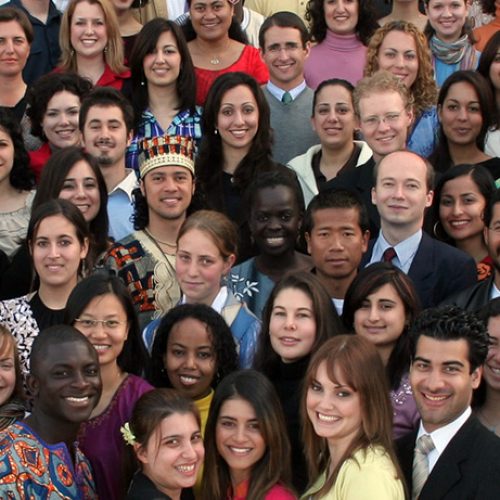Jr. Youth (Ages 12-15)
Falling between the ages of 12 and 15 and representing a transition from childhood to youth, young adolescents—referred to as “junior youth”—experience rapid physical, intellectual, and emotional changes. Their spiritual powers expand. A new level of awareness fosters in them an increased interest in profound questions and in their talents and abilities. During this short and critical three-year period, ideas about the individual and society that may very well shape the rest of their lives are formed. However, delight at these new powers is often combined with feelings of worry, discomfort, and doubt that may produce contradictions in behavior. Directing their new abilities towards selfless service to humanity is therefore needed at this age.
Some views of junior youth do not cast this period of life in a positive light. Popular views, for instance, regard this age as full of confusion and crises. Such thoughts foster conditions in which undesirable patterns of behavior are spread. A proper understanding of this age is that of selfless young people with “an acute sense of justice, eagerness to learn about the universe and a desire to contribute to the construction of a better world”. The negative traits they sometimes show are certainly not intrinsic to this stage in human life.
The key issue to consider then is what the sources of unacceptable patterns of behavior are that sometimes characterize some junior youth. Two factors require particularly careful thought in this regard. First, the effect of negative social forces on many communities has led to the spread of various social ills that have great influence on how young people view themselves and society. Second, junior youth are heavily affected by the behavior of adults towards them. Although at this age they are gaining insights into many profound matters, adults sometimes insist on treating them like children. In addition, the difference in words and actions that some adults at times exhibit can be a source of confusion to young people who are looking for standards by which to shape their lives.
Stressing the effect of negative social forces on junior youth does not imply that young people are basically fragile. They can, with help, face these forces. They can develop the powers of the soul and mind that not only enable them to transcend such challenges but also make them contributors to building a new society.
Several communities in Alaska have Junior Youth Spiritual Empowerment Groups functioning. These groups are facilitated, or “animated,” by an adult—often an older youth—with training. They typically meet once a week for 2-3 hours. Activities and goals of the Jr. Youth Groups include developing strong bonds of friendship, engaging in healthy recreation and games and identifying and carrying out acts of service, usually at the neighborhood level. Additionally, an educational component based on a set of courses utilized all over the world is integrated into the regular activities.
These curricular materials are concerned with developing language skills and the power of expression. Some also address mathematical concepts and social issues, while others seek to prepare young people to approach the investigation of physical, social and spiritual reality in a scientific manner. Though the moral concepts in the materials in the first category are drawn from the Bahá’í teachings, they are not religious in nature, nor do they treat subjects that are specifically Bahá’í. Many kinds of organizations, including academic institutions, find them useful for their educational programs with junior youth. The current titles in this category are:
Those interested in learning more about the Jr. Youth Spiritual Empowerment Program or forming a junior youth group can e-mail jy-anc@akbnc.org






